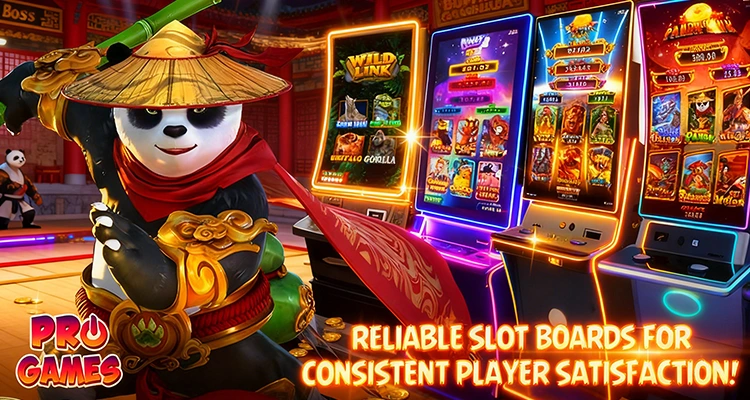Mostly, users often raised a query: what are skill games? Well, skill games are designed to test your actions, not your luck. These games reward hand-eye coordination, timing, focus, and strategy. Whether digital or mechanical, your performance controls the outcome. That’s why they’ve grown in retail spaces, sweepstakes lounges, and convenience stores. Let’s explore what are skill games, and how they stand out from other luck-based games.

What Are Skill Games & Which Types Of Skill Games Are Most Popular Today
Modern players enjoy a mix of arcade-style action and touchscreen precision. Top categories blend visuals with feedback.
Players shoot at animated fish with touchscreen guns. These are games where timing and great accuracy are rewarded. Your ability will influence your score and development.
As compared to conventional reels, skill-stop ones allow you to stop spinning reels yourself. This gives a dynamic aspect to a traditional game board.
Other games, such as jewel-match or object-sort challenge, are easy to play. The quicker and better you do your work, the better your rewards.
Comparing Skill Games To Similar Machines
Skill games normally look like other machines, but these are different. Understanding them helps you choose the right one.
1.Skill Games vs Slot Machines
Slot machines rely on chance. Generally, players spin and wait. While in skill games, the player’s action matters. Whether it’s tapping, stopping reels, or solving puzzles, the skill reflects the outcomes.
2.Skill Games vs Redemption Games
Redemption games give prizes and tickets, while skill games give credits based on how well the game was played. They can be more profitable for locations due to digital payment systems.
3.Skill Games vs Sweepstakes Games
Sweepstakes games work with entry codes and prizes. But skill games don’t require a sweepstakes system. They’re more straightforward and often used in locations where prize systems are restricted.
What Makes A Skill Game Legal In Many States
The legality is determined by whether your choices and not luck affect the outcome. Lawmakers do not want pre-determined wins; they want results founded on inputs.
States that accept skill games require visible interaction among the players. When a win or a loss is determined by a tap, aim, or swipe, it is not chance; rather, it is based on skill.
Gameplay developers have to demonstrate that it is not affected by secret odds. In a majority of states, machines must be equipped with visible documentation or demonstration mode to show the skill part.
Vendors frequently want third-party testing in order to confirm compliance. This makes it so that the retailers are not subjected to violation and seizure of machines during audits.
Market Trends In Skill Games
Skill games are taking the place of traditional machines as regulations restrict these machines. Players take pride in having command of their results, and business owners have the advantage of having low maintenance and frequent usage.
Skill games are favored by businesses because they are safer in terms of legality and risk. They do not have to worry about any licensing problems associated with games of chance, and the investment returns are consistent. The machines are also less likely to require updates as time goes by.
Multi-games and jackpot functions are now incorporated into the software, which makes it more flexible to play and to have the software. The machines that ProSkillGames produces, in particular, are compatible with a variety of cabinets and banknote readers.
The customers desire clear stipulations, prompt action, and returns that they can achieve by competence. Touchscreen operations, high score, and the various themes of the games are now the minimum we expect in the new setups.
Why Skill Games Appeal To Retail Operators?
Retailers are turning to skill games for foot traffic, engagement, and ROI. These machines fill spaces that once sat empty.
Quick game sessions and fair outcomes draw returning users. Repeat plays mean more in-store purchases, especially in snack, drink, or lotto categories.
When customers stop to play, they spend longer in-store. More time usually means higher basket sizes and stronger brand recall.
You don’t need a full game room. Skill cabinets can fit beside ATMs, near front counters, or in corner sections. They’re modular and compact.
What You Should Look For When Choosing Skill Game Software?
The right software affects user satisfaction and compliance success. Choose platforms that work smoothly and scale easily.
Avoid cloned software. Original code runs cleaner, gives a better user experience, and reduces legal risks. Vendors like ProSkillGames provide exclusive code.
Offline-capable systems are more reliable. You’re not reliant on spotty internet or server access, and you avoid ongoing data charges.
Ensure the game runs on touchscreens, standard bill acceptors, and cabinet lights. This lowers installation costs and speeds up deployment.
Future Of Skill Games In Convenience Markets
Skill games are now integral to modern convenience models. New features will define their future growth and adoption.
Machines may soon offer unique player IDs, tracking performance over time. This creates loyalty programs and encourages competition.
Retailers want data without being on-site. Cloud-linked dashboards give location-wide performance snapshots, helping improve layouts and game rotations.
Games will likely include features like play-session timers, audit reports, and player verification tools. These additions future-proof your business against law changes.
Ready To Add Skill Games To Your Business?
ProSkillGames offers original software and machines that are built for steady performance. Whether you run a store, arcade, or small business, our games fit right in and start working for you. Get in touch to see which options match your space.






